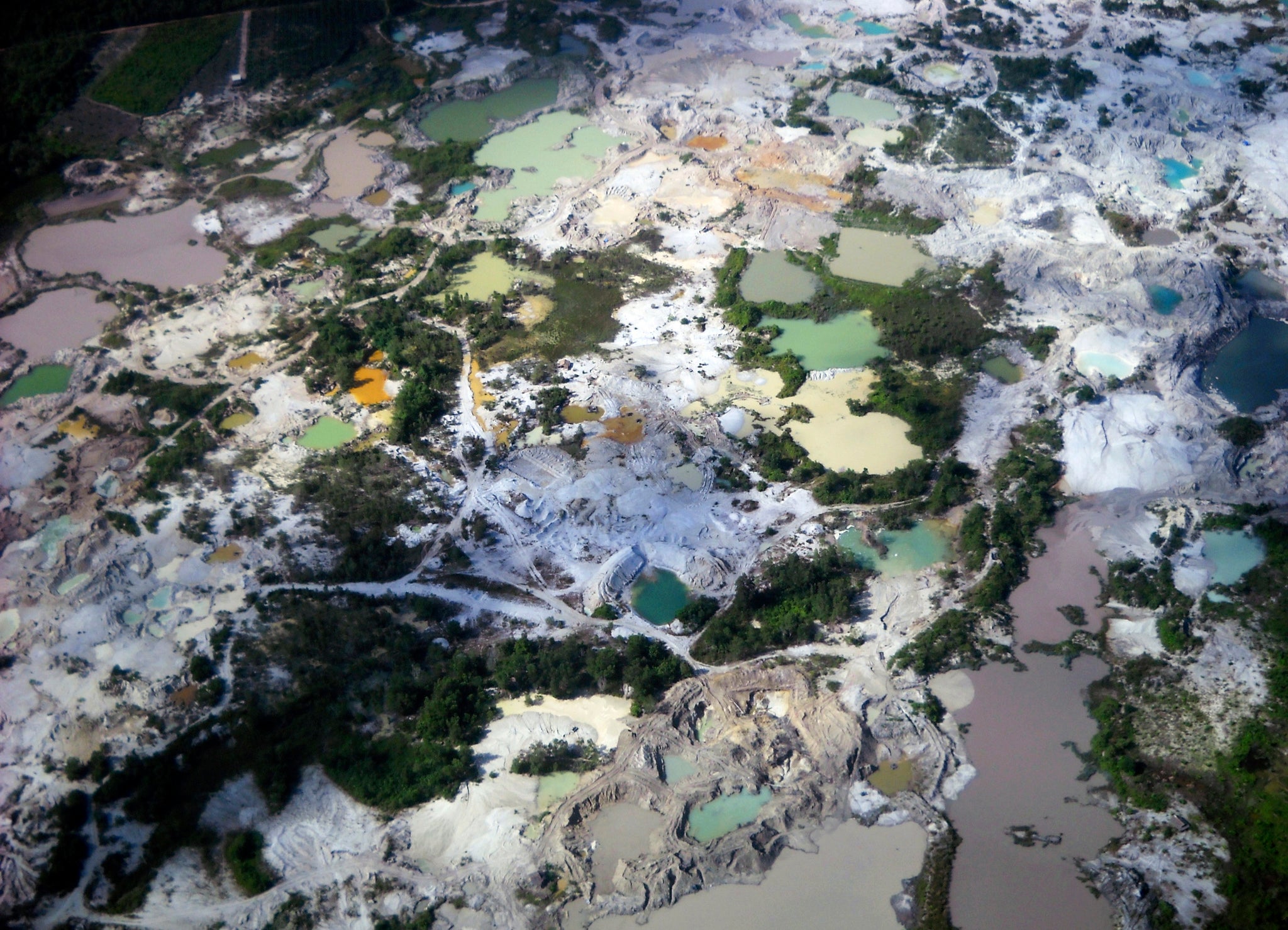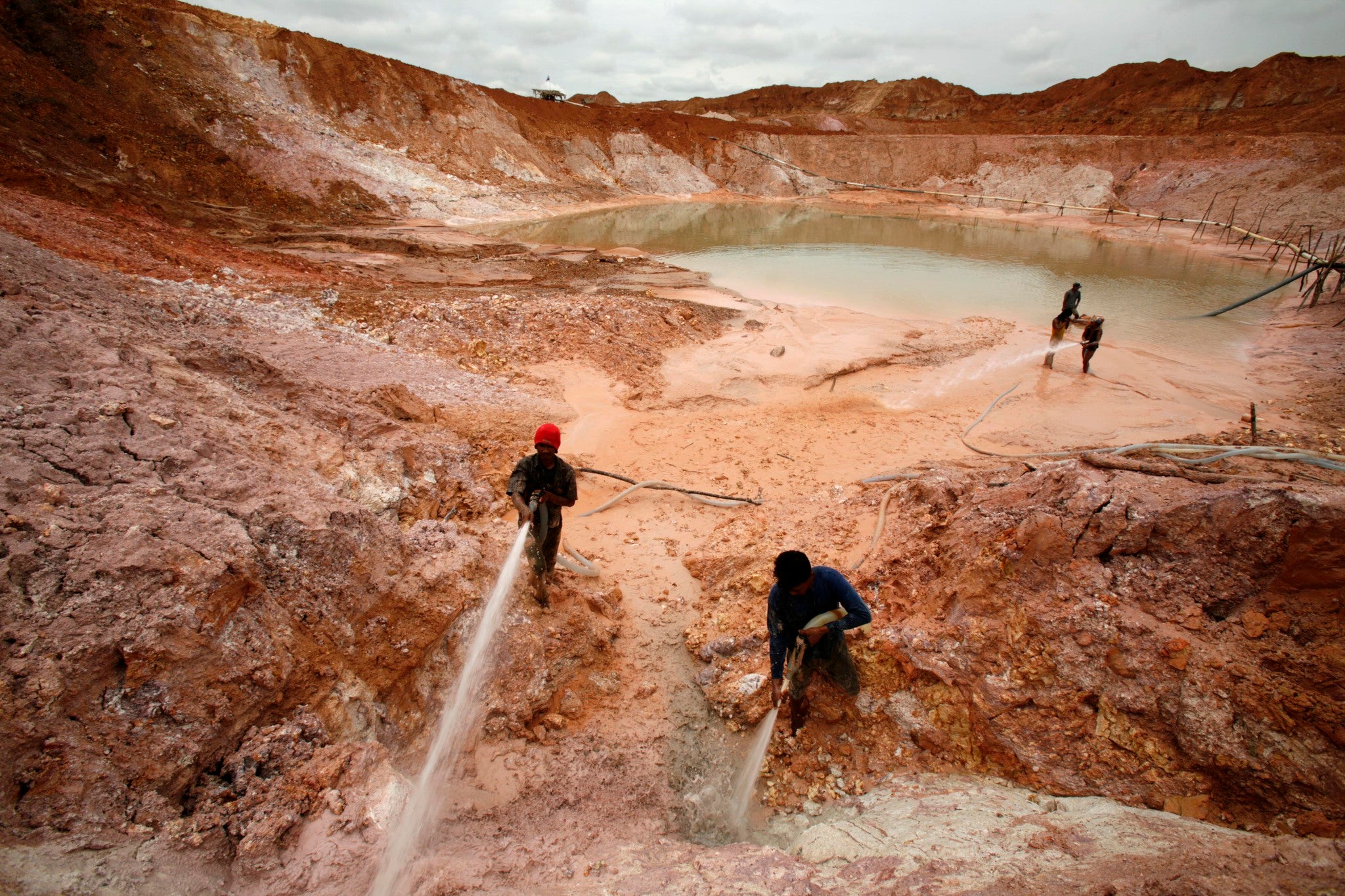The Independent's journalism is supported by our readers. When you purchase through links on our site, we may earn commission.
Major mobile manufacturers admit to using environmentally disastrous tin
Nokia, Sony, Motorola, LG and Blackberry all admit the possibility of using tin from the island of Bangka, an environmental danger spot
After an international campaign organized by Friends of the Earth, the world’s top mobile phone manufacturers have admitted that they are likely to be using tin from environmentally-damaging sources.
Nokia, Sony, Motorola, LG and Blackberry have all issued statements admitting varying degrees of culpability in using tin from the Indonesian island of Bangka, where mining operations are causing deforestation, spoiling drinking water and farmland, and destroying local coral reefs.
Indonesia is the largest global supplier of tin and Bangka provides 90 per cent of the nation’s output. As well as the environmental damage of mining on the island there is also a human cost, with police reporting a miner dying each week in 2011 from pit collapses and related accidents.
Tin is an essential component in nearly all electronics and with the number of mobile devices in the world currently outnumbering people, the problem of sourcing environmentally-responsible materials refuses to go away.

Nokia’s statement on the matter admitted that “the presence of Indonesian tin in our supply chain procedures or ultimately in our products is likely” and that the company “cannot rule out the possibility that tin mined at Bangka-Belitung may be in our supply chain”.
Motorola also admitted the possibility of their phones using Bangka tin, before saying they were working with local groups and NGOs “with the goal of reaching meaningful assurances that tin mining on Bangka Island is done in an environmentally and socially responsible manner."
Only Apple has so far refused to give official comment on the matter, with Friends of the Earth's Director of Policy and Campaigns Craig Bennett describing the company’s silence as “cowardly”: “[Apple’s silence] contradicts its own CEO's commitment to be more transparent about Apple supply chains.”
A previous report from the environmental charity said they had confirmed that Apple uses tin sourced from Bangka, which is supplied via Indonesian distributor PT Timah. Apple has previously come under fire for turning a blind eye to illegal and damaging activity caused by its suppliers. It was recently accused of outsourcing to factories guilty of labour violations.
When contacted by The Independent, Apple repeated previous assurances on their commitment to an ethical and responsible supply chain and also stated that they had initiated "an EICC working group focused on this issue" and that they are "helping to fund a new study on mining in the region so we can better understand the situation."
The full statements form the other mobile companies involved can be read here, but disappointly, most are as carefully worded as Apple's.

Join our commenting forum
Join thought-provoking conversations, follow other Independent readers and see their replies
Comments
Bookmark popover
Removed from bookmarks